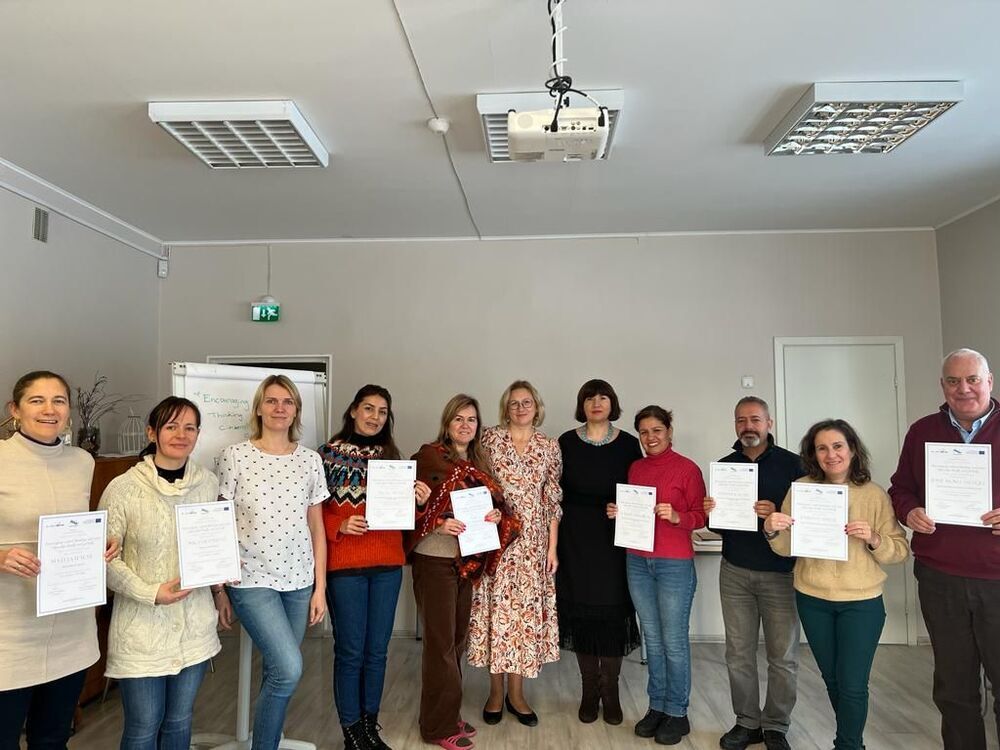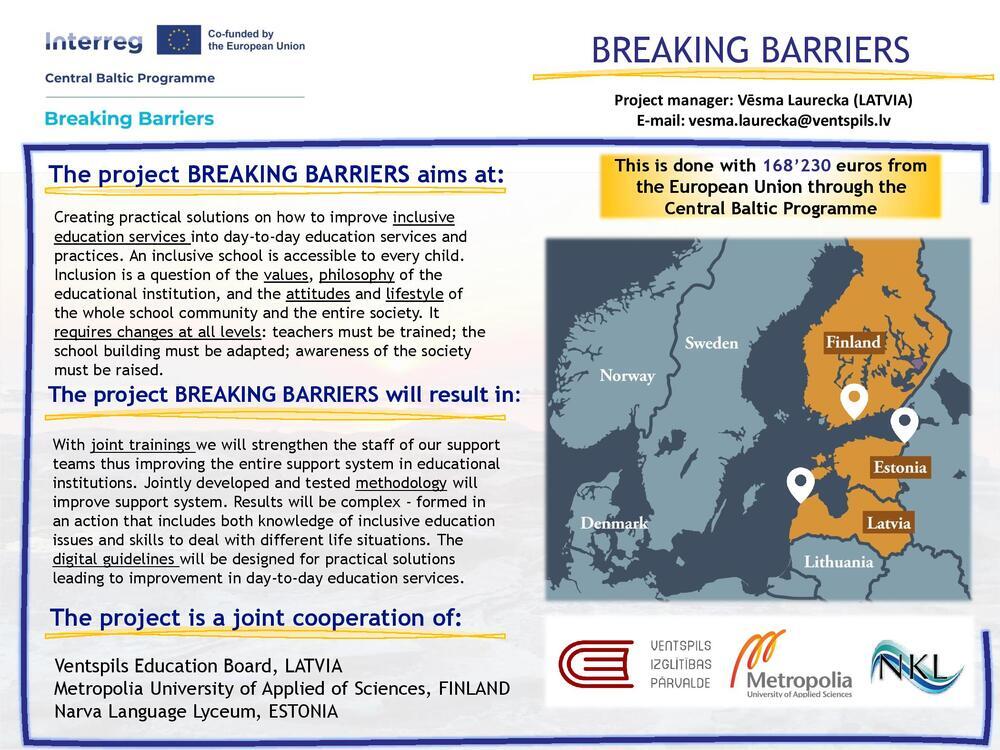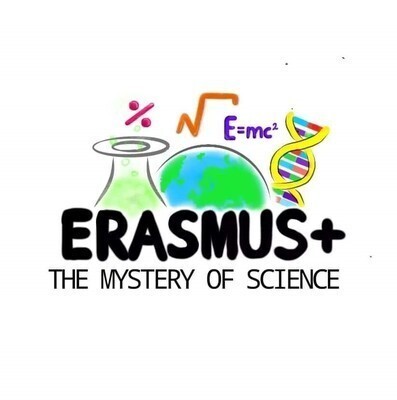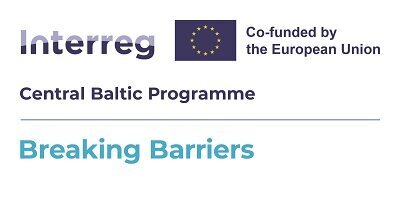EU-preneurs
Erasmus+ strategic partnership
2015-1-EE01-KA219-013452
2015 - 2017
EU-preneurs project was created by the teachers of four European schools: Narva Keeltelütseum (Estonia), Vrij Technisch Instituut Zandhoven (Belgium), Solski center Srecka Kosovela Sezana (Slovenia) and V.Pludona Kuldigas gimnazija (Latvia). All the future partners met at the Erasmus+ contact seminar „Interdisciplinary approach in teaching and learning to promote learners creativity and entrepreneurship skills“ (10 -13 September 2014, Latvia). All the teachers are experienced in coordination and supporting students' mini-companies (Junior Achievement programme).
The main project idea was to develop the concept of international mini-companies, to test students' international mini-companies and to work out on-line tool for similar initiatives. The project methodology is based on Creative Entrepreneurship curriculum (Slovenia) and the research “The Development of Teachers’ Professional Competence in Interdisciplinary Study Environment for Linking Learning to Real Life and Promoting Students’ Entrepreneurship” within ESF project “Support to Education Research” (University of Latvia and Universiti Kebangsaan Malaysia).
The project supported development of students’ key competences, critical thinking, problem solving, reasoning, analysis, interpretation, synthesizing information, research skills and practices, curiosity, imagination, innovation, personal expression, perseverance, self-direction, planning, self-discipline, adaptability, initiative, public speaking and presenting, listening, leadership, teamwork, collaboration, cooperation, virtual workspaces, information and communication technology (ITC) literacy, media and internet literacy, visual interpretation, data interpretation and analysis, computer programming, economic and financial
literacy, etc.
There were 32 students and 21 teachers taking part in the project activities directly. The international learning activities were milestones of the project that allowed the international mini-companies establish contacts, work together, have learning sessions on business-planning, product development, marketing, financial planning, etc. Each project year there were 3 international companies of 4 members (one from each country). Members of the first year companies will become mentors for the second year companies.
The project team worked out Online tool for supporting development of students' international mini-companies - a working document for teachers to support pupils in secondary education to be better prepared for entrepreneurship / economic courses in higher education and entering a labour market:
http://eupreneurs.splet.arnes.si/. The tool contains best practices of the project, learning materials to be used for international mini-companies, recommendations, examples from real life, texts and tasks.
The project outcomes:
2. The students from partner institutions acquired knowledge in entrepreneurship and experience of working in international mini-companies. The students' feedback demonstrated increase of their interest in entrepreneurship and their better ability to apply their knowledge to real-life situations and being equipped for full participation in society.
3. 32 students took part in international learning programmes
4. 6 international mini-companies were established and they developed their business-plans, made prototypes of their products, worked our promotional materials.
5. 21 teachers took part in development of the project on-line tool and prepation and carrying our international learning programmes.
The project results are implemented in further projects and schools' activities.
NARVA KEELTELÜTSEUM 2020 TEEL
ERASMUS+ kooli töötajate õpirännete projekt (KA1)
2016 - 2017
Antud projekti raames täiendasid meie kooli õpetajad end keeleõppe, LAK-õppe, loodusteaduste, e-õppe, ettevõtluse õpetamise ja projektijuhtimise valdkondades.
Projekti töösse olid kaasatud kooli direktor, õppealajuhataja ja 8 õpetajat.
Individuaalne enesetäiendamine välismaal oli esimene kogemus ja väljakutse umbes iga projekti osaleja jaoks.
Me soovime olla kooliks, kus õpetajad ja õpilased valdavad inglise keelt vabalt, osalevad rahvusvahelises koostöös õppeprotsessi raames, töötavad ja suhtlevad maailmaga nii virtuaalselt kui ja reaalselt, tunnevad vastustust oma ühiskonna homse päeva eest, tegelevad oma projektide ja algatustega ning käsitlevad kooli arengukeskkonnana.
Digitaalne keskkond, ainete vaheline lõimimine, ettevõtluse toetamine, inglise keele valdamine, rahvusvaheline projektitöö õppeprotsessis on need vahendid, mis aitavad meie õpilasi 21. sajandi pädevuste omandamisel.
Kõik projektis planeeritud täiendkoolitused olid seotud riikliku õppekava läbivate teemadega.
Projekti otsesed eesmärgid:
1. 10 õpetajate professionaalsete (seotud koolituse teema ja korraldusega) ja võtmepädevuste täiendamine (suhtlus võõrkeeltes, teadmised teaduse ja tehnoloogia alustest, infotehnoloogiline pädevus, õppimisoskus, isiklik, kultuuridevaheline, sotsiaalne ja kodanikupädevus, algatusvõime ja ettevõtlikkus, kultuuriteadlikkus ja kultuuriline eneseväljendus).
2. Uute kontaktide loomine kooli rahvusvahelistumise jaoks.
3. Kooli pädevusvaldkondade laendamine ja tegevuste kaasajastamine (koolituste tulemused kasutatakse uue arengukava koostamisel ja õppiprotsessi korraldamise muudatuste planeerimisel).
4. Ettevalmistus rahvusvaheliste grupide õpetamiseks koolis.
Õpirännete tulemusena omandasid õpetajad väliskogemuse üksi, kohtusid enda ja maailmaga, parendasid teadmisi konkretsetes valdkondades.
Koolitused projekti raames:
01.08.2016 - 12.08.2016 “English for Effective Communication” (UK), osaleja Nadežda Tšerkašina
14.08. – 27.08.2016 “Literature and Drama in Language Teaching with David Farmer and Alan Pulverness” (UK), osaleja Vasili Nosov
29.08. – 02.09.2016 "Education for sustainable development" (Kreeka), osaleja Veronika Žurina
24.09. – 30.09.2016 “PLANNING AND MANAGEMENT OF SUCCESSFUL ERASMUS+ PROJECTS” (Hispaania), osaleja Olga Žukova
24. – 30.10.2016 "Language Learning Fun and Games -Methodology for Primary School"(Malta), osaleja Irina Ivanichenko
24. – 30.10.2016 "Methodology Revisited, Revitalised & Re-energised"(Malta), osaleja Julia Otvagina
20. – 25.03.2017 "Teaching Entrepreneurship in Schools: Experiential approach" (Sloveenia), osaleja Tatsiana Kupratsevich
24.07. – 04.08.2017 "CLIL in Dublin: Content and Language Integrated Learning" (Iirimaa), osaleja Sergei Pavlov
06.08. – 12.08.2017 “Tablet and Smartphones: using mobile devices in class” (Itaalia), Sergey Sharkov
15.10. – 21.10.2017 "CLIL and its benefits" (Saksamaa), osaleja Natalja Fedotova
Konkurss „Kogukonna kaasamine õppekava arendamisse ja rakendamisse“
Kreatiivvõitluste projekt
2017
Projekti raames töötati välja ja testiti uut kogukonnaga koostöö formaati „Kreatiivvõistlus“, mida rakendatakse kooli õppekavas ja peale projekti lõppu kasutatakse nii põhikoolis kui ka gümnaasiumis. „Kreatiivvõistlus“ on meeskonnavõistlus avatud küsimustega, mis eeldavad infopäringuid, ettevalmistust ja loovust. Võistluse põhiteema on „Narva eile, täna ja homme“.
Projekti jaoks on valitud pilootgrupp – 8. klassi õpilased ja nende õpetajad, kes loovad kreatiivvõistluse formaadi koostöös gümnaasiumi õpilaste, lapsevanemate, Narva Linna Arenduse ja Ökonoomika Ameti, Narva Keskraamatukogu ja ajalehe „Narva“ spetsialistidega.
Antud projekt võimaldas uue õpikäsituse rakendamist, toetava koostöövormi loomist ja toetamist: kreatiivvõistluste formaat eeldas koostöö väljaspool kooli arendamist, lapsevanemate ja kogukonna kaasamist õppeprotsessi. Gümnaasiumi õpilaste kaasamine uude formaati ja küsimuste loomisesse soodustas koolidemokraatia tekkimist. Koostöö partneritega andis väärtuslikku kogemust, mille alusel saab üles ehitada uusi projekte ja algatusi.
Osalejate tagasiside näitas, et kreatiivvõistluse formaati tuleb kasutada nii klassidevaheliste ürituste jaoks kui ka erinevate õppeainete sees.
Projekti tegevused:
1. Projekti meeskonna koosolekud – projekti partnerite esindajad kohtusid projekti jooksul ja tegelesid küsimuste väljatöötamise, kreatiivvõistluste formaadi täpsustamise, osalejate tagasiside analüüsimise ja võistluste hindamisega. Toimus ka ettepanekute koostamine teiste õpetajate ja teiste koolide jaoks kreatiivvõistluste rakendamiseks ja tulemuslikumaks kasutamiseks.
2. Kreatiivvõistlused. Projekti jooksul toimus 3 kreatiivvõistlus: 31.03., 27.04. ja 01.06.2017. Võistlustel osalesid 8.klasside õpilased, nende vanemad, linnavalitsuse kultuuriosakonna spetsialistid (kes ei olnud projekti meeskonnas), õpetajad. Igal võistlusel olid omad eripärad:
- Esimesel kreatiivvõistlusel olid küsimused ainult meeskondadele (4 meeskonda: 8.A, 8.B, 8C. klass ja täiskasvanute meeskond)
- Teisel võistlusel oli alguses digitaalne test nii meeskondade kui ka žürii ja vaatajate jaoks
- Kolmandal võistlusel olid eraldi küsimused ka žürii ja vaatajate jaoks
3. Projekti tulemuste tuvustamine ajalehes „Narva“, Narva Keeltelütseumi õpetajate koosolekul ja Narva linna õpetajate koosolekul 05.09.2017. Nüüd on teised õpetajad tutvunud kreatiivvõistluste formaadi ja rakendamise võimalustega õppekava raames.
Partnerite panus oli väga väärtuslik ja tagas projekti tulemuslikkuse suurenemise.
Kooli Facebooki lehel avaldasime küsimusi, mis olid välja töötatud projekti jooksul. Teiste koolide õpetajad saavad neid vabalt kasutada.
Exciting science for sustainable development - students' exchange

Nordplus Junior 2017
NPJR-2017/10292
2017 – 2018
The present mobility project is a continuation of Cooperation project under the EEA/Norway Grants Scholarship Programme "Exciting science for sustainable development", which was carried out by Narva Language Lyceum and Narvic Upper-Secondary School in the period of 2014 - 2016. The main aim of that project was to work out an e-compendium of interactive tasks for upper-secondary school students on the topic of national parks (protected areas) as a way to integrate the green growth and sustainability issues into teaching process.
In the present project there will be students' exchanges arranged in order to test these interactive tasks in international groups in Norway and Estonia. Each mobility will last for one week. The project outcomes for students (11 from each country): they will develop their key competences, learn about Estonia and Norway and meet new people, test the learning materials together and work in international teams, learn about Estonian and Norwegian nature, become a better team locally and acquire experience of participation in an international project, which will help them in their future life and work. The teachers taking part in the project will get the testing results and will improve or update their tasks, they will learn to teach multicultural and diverse groups. The project will strengthen and develop cooperation between two schools in Estonia and Norway and promote the development of quality, creativity and innovation in education by means of interactive learning activities.
"Designing bridges among European citizens through STEAM" 01.09.2017 - 31.08.2019

DESCRIPTION OF THE PROJECT:
"Designing bridges among European citizens through STEAM" is an Erasmus + KA219 project consisting of five European educational centers: Spain (coordinator), Estonia, Romania, Turkey and Italy. The two main OBJECTIVES of the project are:
1. To promote innovative practices using STEAM (Science, Technology, Engineering, Art and Mathematics) subjects;
2. Тo promote equity and inclusion in transnational activities, encouraging the participation of female students to contribute towards gender equality in science and research.
The members of the group work in some innovative fields of STEAM, such as: Robotics, Drones with social uses, Algorithms of electronics in Arduino and Hakeon, Video games software and Interactive Mapping Environment Workshop, and they are interested in partnering to enhance, improve their knowledge and innovative practices.
Key words: STEAM, female equity, inclusion, science.
AIMS
The OBJECTIVES of the project are:
1. Promoting in the students the scientific-technical areas as a whole and in an integral way, using technology.
2. Promoting critical thinking and knowledge through STEAM in high school students.
3. Finding new sources to motivate female students to participate and choose scientific subjects that promote inclusion and not marginalization in the field of research.
4. Helping teachers effectively find practical solutions in their fields of teaching.
5.Creating working relationships and networks of knowledge among different schools through collaborative work to create a network of schools promoting equality, tolerance and teamwork.
Link to blog: http://equity-esteam-innovation.simplesite.com/
The Mystery of Science, Erasmus+
Participants of this project are students from five schools from Croatia-Zagreb, Czech-Trinec, Estonia-Narva, Poland-Wejherowo, and Finland-Lappeenranta.
The main aim of this project is the promotion and development of students' skills and knowledge of the English language, maths, biology, and science with the use of modern technology and ICT.
Participants collaborate in national and international groups and participate in five parts of the project, each focusing on one subject (maths, biology, chemistry, physics, or geography) and prepared by one of the partner schools.
All the tasks are based on a book written by an author from each country. Students promote the book, create and solve tasks connected with the plot. Finally, they work in international groups to create escape rooms based upon the plot of the book.
Encouraging Critical Thinking And Active Citizenship Locally And Globally

Last week, from 28 November to 1 December, our school welcomed partners within the project “Encouraging Critical Thinking And Active Citizenship Locally And Globally”. Our colleagues came to us from schools of Lithuania, Portugal, Slovenia and Turkey. During the meeting the teachers worked on the report and the final product of the project: a collection of activities that develop critical thinking and active citizenship locally and globally. The pupils and teachers from schools of five partner countries developed and tested these tasks during three years. Our guests also got acquainted with our Lyceum, town and country. In our school, the guests took part in a very interesting English lesson on the topic "Human Rights" in the 12th grade. We are grateful to our teacher O.V. Nagibina for this opportunity. Also, the students of our Lyceum gave presentations about their experience and achievements in project activities and international competitions. The project is coming to an end, but we look forward to new beginnings and new collaborations. We thank all our leaders and participants!

Our great project has finished. We are happy to sum up that a lot of students and teachers studied and worked together in order to create a set of activities which are going to be interesting and useful during the classes at any upper-secondary school.
You are welcome to look through our ebook with activities. Feel free to use them in your classes.

International project "Breaking Barriers"
The “Breaking Barriers” project, in which the Narva Language Lyceum is a partner, together with educational institutions in Latvia and Finland, is coming to an end.
The key words of the project are inclusiveness and support for every child, regardless of his abilities and characteristics. The goal of the project was to create practical solutions to improve the quality of inclusive education.
In every country, an important criterion for the quality of education is personalized education, which fully includes every child and young person in learning. Inclusive education is the basis of lifelong equality. An inclusive school is accessible to every child, accepting that each child is different.
The project aims to create practical solutions on how to improve inclusive education services into day-to-day education services and practices.
During the project, three working meetings of partner countries took place: Latvia, Finland and Estonia.
The first working meeting took place from 12.06.23 – 14.06.23 in Ventspils (Latvia). During the meeting, the organization of support systems for students with special needs was compared at both the school and state levels. The program included visits to regular schools where inclusive education is used, as well as specialized educational institutions for children with severe disabilities. Also, one training day was devoted to the importance of developing students’ emotional intelligence.
The second working meeting was held from 25.09.23 – 27.09.23 in Helsinki (Finland). During the meeting, project participants visited schools and the Metropolia University of Applied Sciences, where they learned about positive examples of inclusive education. Specialists had the opportunity to exchange experiences, adopt useful teaching methods and practices, and organize school space.
The third and final stage of the project took place from 11.06.24 -14.06.24 in Narva (Estonia).
During the program, representatives of the Narva Language Lyceum, together with partners from Finland and Latvia, visited the Vivere private school (Tallinn), where the principles of inclusive education are successfully applied. Also during the meeting, we visited the department of the Tallinn Technical High School, located in Mõdriku, where future social workers are trained.
The main final stage of the project was the final seminar held at the Narva Language Lyceum on June 14, 2024. Representatives of the education department of the city of Narva, representatives of Narva schools and everyone interested were invited to the seminar.
During the seminar, representatives of each project partner country shared the results of the work done, their experience and useful examples of practical work.
In the first part of the seminar, guests were introduced to the work of support specialists of the Narva Language Lyceum, the methods used to support children with special educational needs, methods of inclusive education, ways to develop social skills and emotional intelligence in children.
The results of the work done were also summed up:
As part of the Breaking Barriers project, school support specialists conducted co-visions for teachers, individual meetings and consultations for teachers, parents and students, also organized round tables with the involvement of specialists outside the school.
At the Narva Language Lyceum, recreation areas for children were created and noise-cancelling headphones were purchased, to help children concentrate on the learning process, if nesessary.
Inspired by the topic of the project, students at the gymnasium level showed great interest in holding events and organizing master classes aimed at developing inclusive education, developing emotional intelligence in children, maintaining mental health in children, and preventing school bullying. In the 2024-2025 academic year, with the support of teachers and support specialists, their ideas will be implemented as part of research and practical works.
In the second part of the seminar, guests were able to take part in working rooms. One of the working rooms “Sense of communality and parcitipation for all in Lower Secondary School in Finland” was organized by Finnish colleagues. Second room “Lessons of transition into Latvian language of instruction in education. Solutions found” was organized by Latvian colleagues. Next, guests had the opportunity to take part in co-visions in English and Russian languages, organized by participants from Estonia.
Thanks to the successful collaboration of the “Breaking Barriers” project partners solutions and approaches were developed to improve inclusive education in schools and shared with guests of the final seminar.
We express our deep gratitude to the principal of the Narva Language Lyceum Nadežda Tšerkašina and the project coordinator from Estonia Elena Lohmatova for the opportunity to participate in the Breaking Barriers project!
Social pedagogue Daria Ivanova,
Psychologist Alisa Seppenen,
Speech therapist Mekhriban Matrasulova.
Project results









